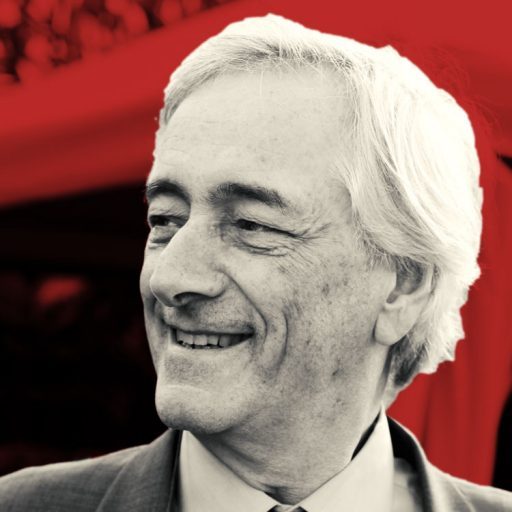– I –
- Energy, matter, time and information, started with the so called Big-Bang.
- If there is existence, there is time; and vice versa.
- What existed before the Big Bang (energy? Information?), we do not know and cannot know.
- There may be other universes, but we don’t know.
- The (our) universe started with a first asymmetry that introduced a variational principle.
- The variational principle may be related to temperature or information; we don’t know.
- It seems that the universe evolves towards complexity, gaining information and getting colder.
- In any exchange of energy and matter, there is a change of information.
- Information (very likely as entropy) is a property or state descriptor of matter.
- Information, linked to the form of matter, can be structural or functional.
- Functional information has an effect on other informed systems that are capable to process it.
- More informed systems can do more with small incomes of information, than less informed.
- The increase in size of things can be linked to better perform informational processes.
- Complexity relates to the level and kind of interactions between components of a given system.
- The evolution of information towards complexity (up to communication) is a universal trend.
- Accumulated (historical) Information favors exchange of energy and matter towards progress.
- A system progresses when it gains more independence from the external environment.
- Persistence is a trend in complex adaptive systems (stronger the more informed the system is).
- Matter (informed) evolves more rapidly when complex adaptive systems build up.
- Life (living matter) is an emergent property of inert matter and can be distinguished by its behavior.
- Living systems are dissipative, self-maintaining, and mnemonic fostered by autocatalytic chemistry.
- Life evolves openly in a contingent universe, and tends to expands as much as it can.
- Biodiversity is a consequence of the process of life and contingencies (no determinism at all).
- Genetic mutations are not directed. Hence, there is no goal or purpose in evolution (no teleology).
– II –
- The mind (thinking matter) is an emergent property of life can and be distinguished by its behavior.
- The emergence of mind may be a consequence of chaos or of the progressive evolution of matter.
- The mind manages highly structured information and permits communication and propagation of it.
- The mind is a complex adaptive system that fostered cultural evolution.
- Cultural evolution is much faster than ordinary biological evolution which follows the genetic way.
- With the mind, determinism (voluntary) started in our known Universe.
- With the mind, consciousness started in our known Universe.
- For convention, we use the term nature for things that exist prior to mankind or without its intervention
- For convention, we term the effects of the mind as anthropic, and their products as artificial.
- Our species evolves (in the natural and artificial environment) but not in the Darwinian way anymore.
- In planet Earth we have at present inert matter, living matter and thinking matter.
- In planet Earth we have a hydrosphere, a lithosphere, an atmosphere a biosphere, and a psychosphere.
- The psychosphere has expanded outside the physical limits of the other spheres of planet Earth.
– III-
- As observer, we are bearers of knowledge.
- The observer influences the observation. Hence, observations are subjective.
- Observations can be real or illusory.
- Real is what has a physical entity (measurable). Hence, reality is supported by matter.
- Illusory is what is seen as real but is not.
- Our observations and deductions tend to be anthropocentric or anthropomorphic.
- Knowledge is an ensemble of mental representations (ideas) of things and events, present or past.
- An idea is real; what it represents may or may not. Ideas have a material (neurochemical) basis.
- The senses and accumulated experience (historical knowledge) play a role in observations.
- Deduced and inferred ‘reality’ may be real or illusory.
- Artistic (passion) knowledge is subjective, not dialectic and linked to instinct, intuition or creativity.
- Revealed knowledge is external, objective and also not dialectic (never tested, only interpreted).
- Scientific knowledge seeks objectivity, is intelligible and highly dialectic (submitted to proof).
- We use these three basic kinds of knowledge to move around in our lives.
– IV –
- The basics of rational capacity are ‘wired’ on causal-effect procedures of the supporting brain.
- We build abstract ideas with our rational capacity to form coherent interpretations of gained knowledge
- We firstly seek and gain knowledge from ourselves and the environment, for moving safely around.
- We also use our rational capacity for seeking complaisance and for avoiding pain, fear, and anxiety.
- With the emergence of mind, our species is the only one conscious of its timed persistence.
- The use of religious beliefs is strongly rewarded by the complaisance and calmness obtained.
- Love, universal consciousness, fraternity, and feelings alike are conceptions for the complaisance.
- The idea of gods or a sublimated unique deity is related to the original cause-effect wiring of our brain.
- The mind is free to think without limits (as far as we know).
- If there are other forms of life after the present form of life, we don’t know (scientifically).
- The mind is free to believe anything so long it is maintained in the realm of revealed knowledge.
That`s it
Reflections triggered by a text written by my daughter Laura and her mystic views of nature.
A. Machado, January 2014



Leave a Reply